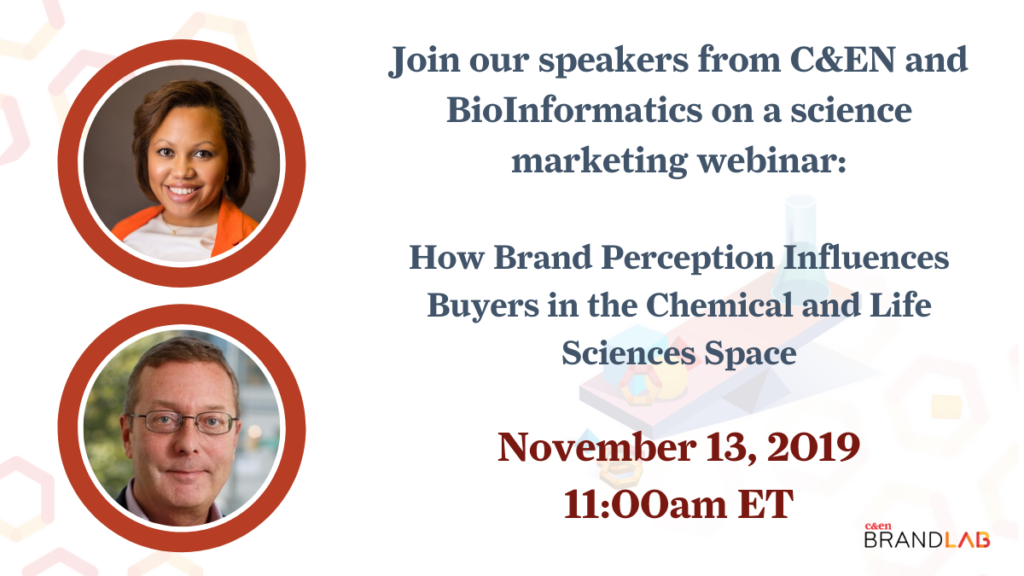What does your brand stand for?

by Raj Mukhopadhyay
Raj Mukhopadhyay is the Executive Editor of C&EN BrandLab, our custom content studio for the C&EN chemistry newsmagazine.
In May, Allyson Felix, a nine-time Olympian athlete, announced that she was splitting from her sponsor, Nike, because of an impasse over maternity benefits. News that the world’s most profitable sports company, with over $15 billion in revenue, had cut off paychecks and health insurance to Nike-sponsored athletes who became pregnant didn’t go over well.
In the face of the uproar, Nike’s executive vice president of global sports marketing, John Slusher, issued a letter to the company’s sponsored athletes to say that the company’s policies were now updated. Athletes’ performance requirements would now be suspended for up to 18 months should they become pregnant.
Consumers can hold the power to make companies change their tune, and that’s not just in the world of sports. Scientists pay close attention to the actions of companies that sell them their instruments, lab consumables, chemicals, and other things. We know this to be true at C&EN BrandLab because we just completed a brand survey in which we found that our audience of scientists favor brands that promote scientific innovation, sustainable practices, and great customer service.
The survey was completed by 779 scientists who had the influence and means of purchasing goods and services for their organizations. Most of them were involved in research and were responsible for over $150 million in potential buying power.
We asked the respondents about 23 brands. Some brands were from the instrumentation space; some were from the specialty chemicals space. We’ll be hosting a webinar to go through our general results in detail, but here, we wanted to highlight a few findings.
From the survey responses, brands that resonate well with scientists were ones viewed as developing innovative new products that were reliable and worked consistently. Respondents also said they had more affinity towards brands that made the time and effort to educate customers. It was also obvious from the survey that it isn’t enough for a company to just push products and their features. Customers want information that isn’t a sales pitch. The information has to help scientists better understand how science and technology are advancing. How can a company’s tools further what scientists are trying to accomplish? Scientists also want to understand a brand’s values: What does the company care about, and do those cares match the values that scientists hold? Does the company have a corporate responsibility mission? Does a brand advocate chemical safety? Does the company engage in sustainable manufacturing practices?
Customers want information that isn’t a sales pitch… they want to understand a brand’s values.
Getting these values across to customers can be challenging because simple product sales pitches don’t hit the mark. A different tactic is needed—storytelling. This type of content marketing is an evocative way to show what a company values. Through stories, brands in the scientific arena can demonstrate that they care about the same things as their customers do. While using brand stories in science is complex, because the science has to be accurate and in context (in contrast to, say, a grandiose product claim), the power of a story is that it can most effectively convey the message for what a brand stands for. It establishes connections with people.
After all, that’s what Nike did in August. Right after the US women’s soccer team won the World Cup, Nike released a powerful ad that championed female empowerment. The company also moved to support equal pay for female athletes. By listening to their customers, Nike was able to use storytelling to re-establish itself as a brand that stands for something important.
To learn more about how branding plays a direct role in purchasing behavior, register for our webinar on November 13th. Do you want to know if your brand was one we studied? We’re currently taking meetings to discuss each brand’s perception in the marketplace. To find out more, please email us at [email protected].











